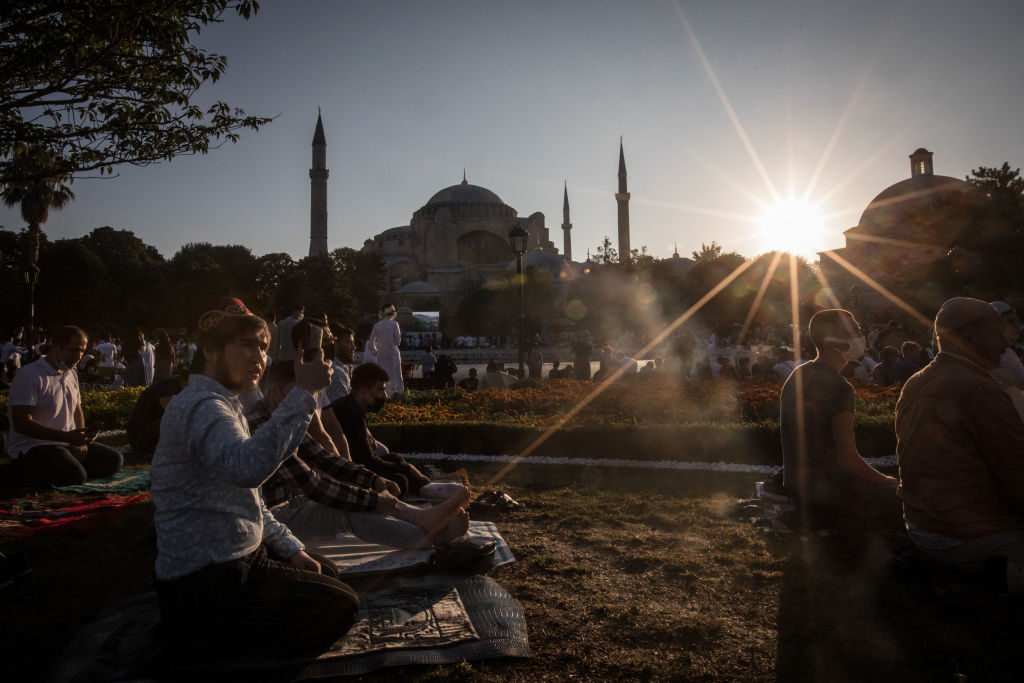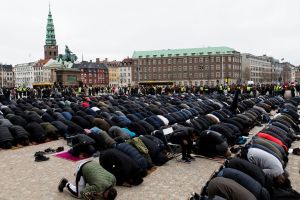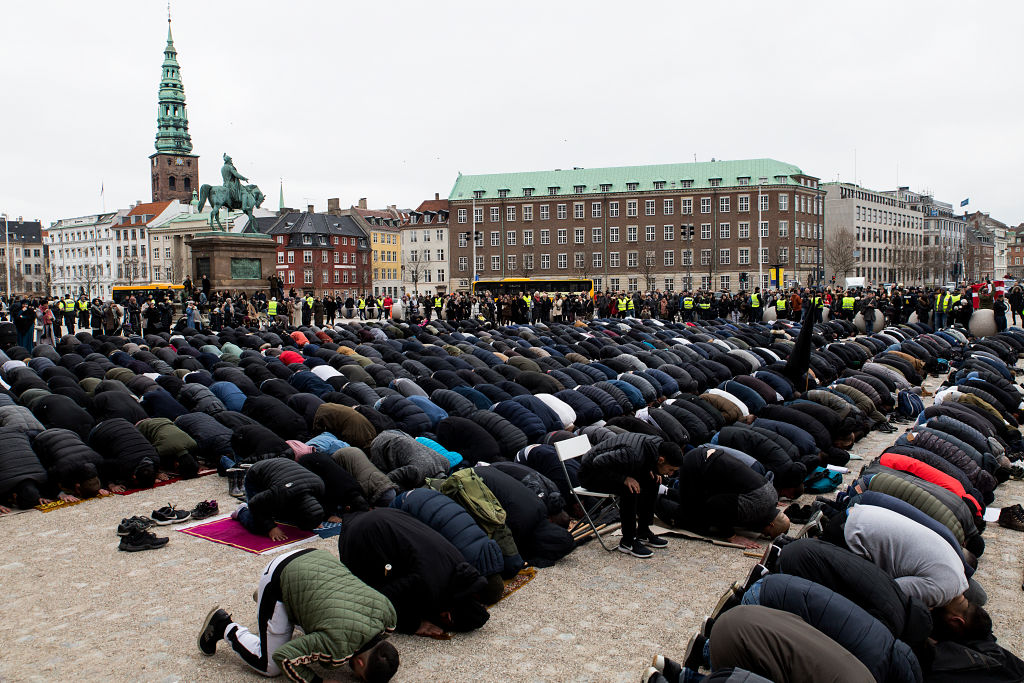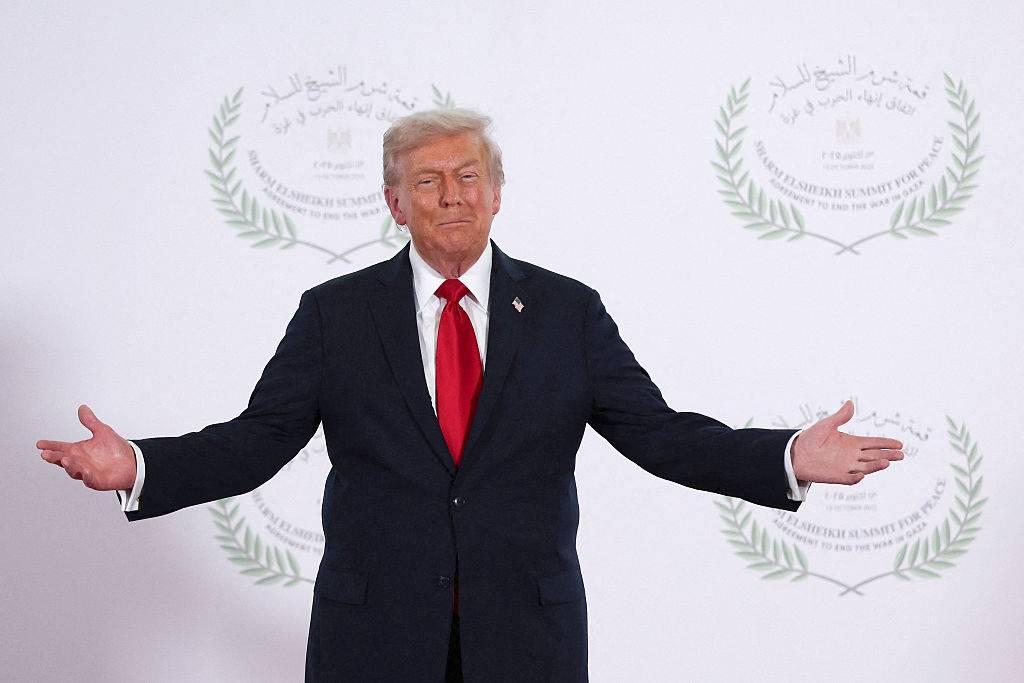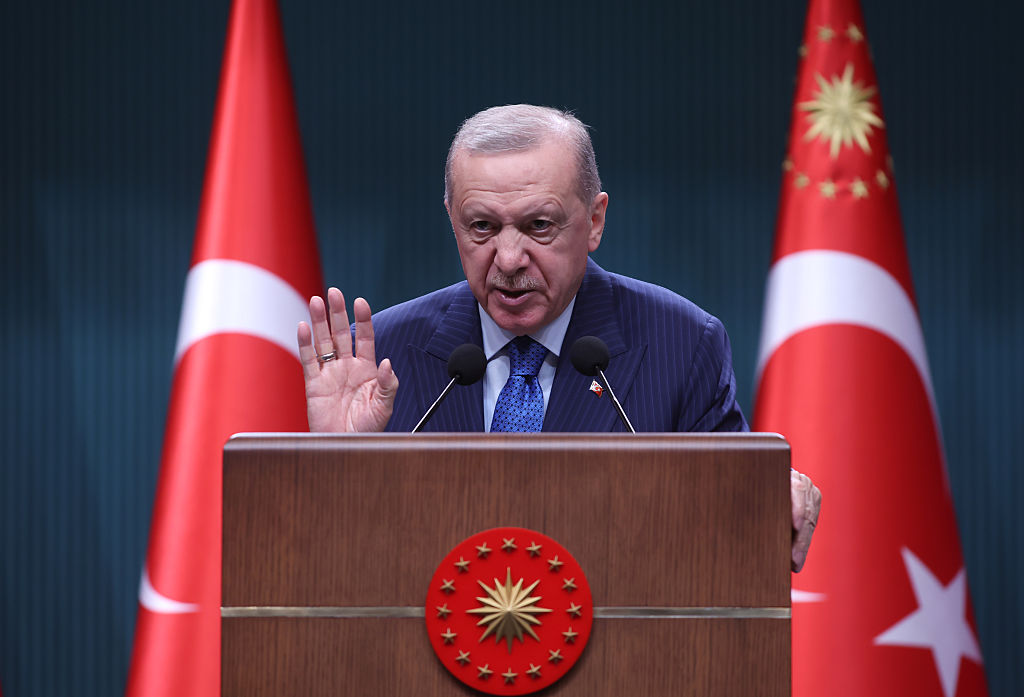Christians around the world have been outraged by Turkey’s decision to convert the Hagia Sophia cathedral into a mosque. This astonishing architectural masterpiece was completed in 537 and is considered one of the Orthodox church’s holy sites. (The cathedral was, for 57 years after the crusades, a Roman Catholic church.) With the Ottoman conquest of Constantinople in 1453, minarets were added, and it was converted into a mosque. In 1934, the secular leader of Turkey attempted to end the religious division over the building and turned it into a museum.The reader should notice that I place the responsibility for Hagia Sophia’s conversion on the nation of Turkey, not on President Erdogan. The distinction is important because our foreign policy in the Middle East has been marked by a failure to understand what Samuel Huntington called ‘The Islamic Resurgence’. Rather than recognizing that Islam is undergoing a historic re-awakening, causing a sharpening of its hostility to the West, we have chalked up Islamic-Western tensions to a handful of bad guys: Ayatollah Khomeini in Iran, Osama bin Laden in Afghanistan, Saddam Hussein in Iraq, Bashar al-Assad in Syria, and more recently, Gen. Qasem Soleimani. With the conversion of Hagia Sophia, some foreign policy commentators want to add President Erdogan to the list.Foreign-policy-by-bad-guy has led American policymakers to conclude that if we can just deploy enough drones, Rangers and SEALs to the Middle East and take these bad guys out, Islamic-Western friendship will flourish. Democracies will spring up, constitutional conventions will be called, Islamic George Washingtons will appear. Of course, nothing could be further from the truth. Consider what Huntington wrote in 1996 about the Islamic resurgence: ‘Beginning in the 1970s, Islamic symbols, beliefs, practices, institutions, policies and organizations won increasing commitment and support throughout the world of one billion Muslims stretching from Morocco to Indonesia and from Nigeria to Kazakhstan… In 1995, every country with a predominately Muslim population, except Iran, was more Islamic and Islamist culturally, socially, politically than it was 15 years earlier.’Given this profound Islamic re-awakening, Western leaders should have recognized that a policy of Middle Eastern interventionism by Western armies would be the worst possible strategy. Yet that is precisely the policy we adopted, starting with the First Gulf War when we sent hundreds of thousands of Western troops to Islam’s holiest places in order to support a loathsome little sheikdom in Kuwait that was likely stealing Saddam Hussein’s oil. This made it quite easy for Osama bin Laden to build a terrorist organization on the basis of Islamic resentment at the Western invasion of Islamic civilization. The diabolical terrorism of 9/11 then sent us deeper into the Middle East quicksand from which it seems impossible to extract ourselves.Western foreign policy elites are highly secular which is the reason that they failed to understand the Islamic re-awakening. They thought that if we cashiered some dictators with some heavy firepower and then spread around a little democracy (along with some ‘walking around’ money), the Middle East would learn to love the United States. Instead, we have learned that the Islamic world resents, or even despises, the United States, an animus made worse by our constant interventions.
[special_offer]
Which raises the question: what to do about Turkey? As the Islamic re-awakening has permeated Turkish culture, she has emerged as the most uncomfortable member of the ‘Western’ alliance and Nato. Just as the Cold War ended and Nato was trying to make peace in the fracturing Balkans, Turkey was smuggling weapons to the Bosnian Muslims. Turkey’s application to the European Union has been denied due to the discomfort of the Europeans, especially the Germans, with Turkey’s human rights record. In 2003, Turkey’s parliament denied a US request to launch the invasion of Iraq from bases in Turkey. More recently, Turkey purchased Russian anti-aircraft systems; they threatened to send more Syrian refugees into Western Europe; and the Turkish navy harassed French ships trying to enforce an arms embargo on Libya. Maybe the most serious breach between Turkey and Nato came when the Turkish military launched an incursion into Syria to wipe out Kurdish fighters who had been the US’s best ally in our fight with Isis. Sen. Lindsey Graham threatened to suspend Turkey from Nato for this incursion. Shouldn’t it be obvious that Turkey is angling for the leadership of Islamic civilization and that Nato’s priorities are probably not that important to it? The age of a supposedly secular Turkey has ended, and that nation is now firmly Islamic in character and culture. Given this development, we should tip our hats to the Turkish people, thank them for their support against Soviet communism during the Cold War, and start easing them out of Nato.The Nato alliance, if it is to survive at all, should be a partnership in Western civilization, in our highest values and traditions, such as constitutional liberties and the rule of law. What other possible justification is there for Nato? Now that Hagia Sophia has been turned into a mosque, let’s not pretend that Turkey wants to be a Western nation with Western values. Because of our past partnership, we should not eject Turkey with animus but with the genuine hope that their turn to Islam will benefit their nation. And, then, we should exit the Middle East where we are not welcome.William S. Smith is senior research fellow and managing director of the Center for the Study of Statesmanship at the Catholic University of America. His recent book Democracy and Imperialism is from the University of Michigan Press.



